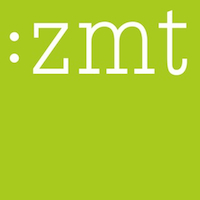| Pages in topic: [1 2 3] > | Poll: When working on texts in languages with gendered nouns/pronouns,how do you handle gender neutrality? Thread poster: ProZ.com Staff
|
|---|
This forum topic is for the discussion of the poll question "When working on texts in languages with gendered nouns/pronouns,how do you handle gender neutrality?".
View the poll results »
| | | |
I cannot speak to other languages, but when it comes to German, gendered/gender-neutral language is an absolute minefield where you're guaranteed to step on at least one. This is why I try to avoid pronouns or gender-specific nouns as long as the resulting sentence doesn't end up sounding TOO weird. When I do have to decide between natural-sounding language and political correctness, I will always opt for the former, though.
| | | | Thomas Lof
Local time: 18:21
Member (2020)
English to Dutch
+ ...
Just as nature and/or native language dictates or requires. No use of gender neutral or woke non-sense
| | | | | Italian grammar rule (until now) | Mar 6 |
Alex Lichanow wrote:
I cannot speak to other languages, but when it comes to German, gendered/gender-neutral language is an absolute minefield where you're guaranteed to step on at least one. This is why I try to avoid pronouns or gender-specific nouns as long as the resulting sentence doesn't end up sounding TOO weird. When I do have to decide between natural-sounding language and political correctness, I will always opt for the former, though.
Same here for Italian, because grammar rule says:
in Italian it is still completely normal, especially in bureaucratic-administrative language, to use the masculine (whether candidates, opponents, or whatever) to address a group of people whose gender identity is not known. This masculine is neither "neutral" nor "inclusive", but "overextended".
| | |
|
|
|
Tom in London
United Kingdom
Local time: 17:21
Member (2008)
Italian to English
Angie Garbarino wrote:
[Same here for Italian, because grammar rule says:
in Italian it is still completely normal, especially in bureaucratic-administrative language, to use the masculine (whether candidates, opponents, or whatever) to address a group of people whose gender identity is not known. This masculine is neither "neutral" nor "inclusive", but "overextended".
Just yesterday an Italian client demanded that I use the "politically correct" (i.e. gendered) version of the English language in a statement I had translated from the Italian staying faithful to the "masculine" as described above by Angie because it simply sounded better, in the context, to keep the "gendered" version.
| | | |
I follow the rules of Portuguese grammar and will continue to do so. In any case, I've only been confronted with the problem once so far (singular they) and in this particular case I asked the client...
| | | | Baran Keki 
Türkiye
Local time: 20:21
Member
English to Turkish
Luckily for me, Turkish is a gender-neutral language. Probably one of the reasons why PC or wokeness has never gained any traction round these parts...
| | | | | Overextended masculine | Mar 6 |
Angie Garbarino wrote:
Same here for Italian, because grammar rule says:
in Italian it is still completely normal, especially in bureaucratic-administrative language, to use the masculine (whether candidates, opponents, or whatever) to address a group of people whose gender identity is not known. This masculine is neither "neutral" nor "inclusive", but "overextended".
This is basically the same in German. The problem in Germany is that the socio-political discourse is being dominated by a small but very vocal minority who apparently simply WANT to feel excluded and offended. Bonus points for a majority among this minority not even being non-binary at all. This is why I choose to simply go along with what counts as "German language" officially, i.e. is included in the Duden. Gender-neutral/non-binary pronouns like "xier" are currently not included, so I'll be damned if I use them in my translations.
| | |
|
|
|
expressisverbis
Portugal
Local time: 17:21
Member (2015)
English to Portuguese
+ ...
I would handle it as in any other situation that requires intelligence, a strong knowledge of my native language (which is very rich!) and professionalism.
That's enough to contribute to a more inclusive and respectful communication environment!
So far I haven't worked on any texts where a client has asked me to use gender neutrality.
| | | |
As ever, it depends. If I know the subject to be male or female, I use he/she, if I don't I use they or rework the wording. I translated a book about queer life in Africa not so long ago, and some people included preferred to use they as their pronouns.
I also feel as if I should come out here - I lean myself more towards "they".
Also, calling this topic "woke nonsense" has a whiff of middle-aged white-man syndrome about it. If you'd like some information about the va... See more As ever, it depends. If I know the subject to be male or female, I use he/she, if I don't I use they or rework the wording. I translated a book about queer life in Africa not so long ago, and some people included preferred to use they as their pronouns.
I also feel as if I should come out here - I lean myself more towards "they".
Also, calling this topic "woke nonsense" has a whiff of middle-aged white-man syndrome about it. If you'd like some information about the varieties of gender from a scientist's point of view, "Different: Gender Through the Eyes of a Primatologist" by Frans de Waal is an interesting read.
[Editada em 2024-03-06 11:38 GMT] ▲ Collapse
| | | |
At my previous employer, there was one particular busybody colleague who missionised for the use of gender-neutral language thoughout the company. I had to listen though a seminar of hers on the subject once. I could not fathom the arrogance of one person more or less telling others how they should speak or write.
| | | | | Nothing to do with political correctness or wokeness | Mar 6 |
It's not for the translator to apply their (sic) own political views. Our job is to do what is best for the client. That will depend on the target language and the target market.
In the case of English, we generally need to avoid anything gendered. Failing to do so can alienate people and harm the client's reputation. Do it well and the anti-PC brigade won't even notice you've done it.
I don't know if any of you have looked into things like writing inclusive job ads, b... See more It's not for the translator to apply their (sic) own political views. Our job is to do what is best for the client. That will depend on the target language and the target market.
In the case of English, we generally need to avoid anything gendered. Failing to do so can alienate people and harm the client's reputation. Do it well and the anti-PC brigade won't even notice you've done it.
I don't know if any of you have looked into things like writing inclusive job ads, but it's an absolute minefield. Random example: www.uinclude.com. ▲ Collapse
| | |
|
|
|
Christopher Schröder wrote:
It's not for the translator to apply their (sic) own political views. Our job is to do what is best for the client. That will depend on the target language and the target market.
In the case of English, we generally need to avoid anything gendered. Failing to do so can alienate people and harm the client's reputation. Do it well and the anti-PC brigade won't even notice you've done it.
I don't know if any of you have looked into things like writing inclusive job ads, but it's an absolute minefield. Random example: www.uinclude.com.
This is one of many upsides of English - it has a more or less universally accepted non-binary pronoun in "they" (I am aware that it has its detractors, but it has managed to establish itself). If we compare it with German, our third-person plural pronoun "sie" IS actually gender-neutral, however, we do not have an official non-binary third-person singular pronoun. While "xier" exists as a suggestion, it has not officially entered our language, and any attempt to use it sounds and reads just as unnatural as colons or asterisks in the middle of otherwise "gendered" nouns. It is also simply not being accepted among the vast majority of Germans, which absolutely also includes lots and lots of persons who do not self-identify as male.
| | | | Lorenzo Meloni 
Italy
Local time: 18:21
Member (2022)
English to Italian
| Always gender-neutral | Mar 6 |
Italian here, and it can be tough. :'D
When addressing users/people, I always use an inclusive and gender-neutral language, unless the resulting sentence is extremely convoluted or it is impossible to do so because of character limits.
In those cases, it really depends on the task and client, if the sentence can be creatively adapted it is usually possible to find a solution, otherwise the only chance is defaulting to masculine.
Forgive me if I go on a tangent now... See more Italian here, and it can be tough. :'D
When addressing users/people, I always use an inclusive and gender-neutral language, unless the resulting sentence is extremely convoluted or it is impossible to do so because of character limits.
In those cases, it really depends on the task and client, if the sentence can be creatively adapted it is usually possible to find a solution, otherwise the only chance is defaulting to masculine.
Forgive me if I go on a tangent now, but the real issue to me is gender/number agreement in content like UI with heavy placeholder usage and no ICU Syntax. I know many colleagues will share the pain here. :'D
In that case it is either raising tons of queries (and sometimes there is no fix anyway) or just defaulting to masculine singular.
I find it surprising how in 2024 so many pieces of software (which are eventually localized) are still developed without taking l10n into account. ▲ Collapse
| | | | Arne Krueger
Germany
Local time: 18:21
German to English
+ ...
Just invent new terms/descriptions for our fellow LGBTQIA+ fellows. Let 'em vote for it. Problem solved.
For any other human not included thus far, simply add a sentence like, "Anybody that feels not mentioned in this text is hereby included."
But you do have to wonder how people came up with articles in the past in German... Das Kind?? Der Elternteil?? Die Spirituose, aber das Bier und der Rum.
What now? Very confusing... ^^
| | | | | Pages in topic: [1 2 3] > | To report site rules violations or get help, contact a site moderator: You can also contact site staff by submitting a support request » Poll: When working on texts in languages with gendered nouns/pronouns,how do you handle gender neutrality? | Anycount & Translation Office 3000 | Translation Office 3000
Translation Office 3000 is an advanced accounting tool for freelance translators and small agencies. TO3000 easily and seamlessly integrates with the business life of professional freelance translators.
More info » |
| | CafeTran Espresso | You've never met a CAT tool this clever!
Translate faster & easier, using a sophisticated CAT tool built by a translator / developer.
Accept jobs from clients who use Trados, MemoQ, Wordfast & major CAT tools.
Download and start using CafeTran Espresso -- for free
Buy now! » |
|
| | | | X Sign in to your ProZ.com account... | | | | | |














































